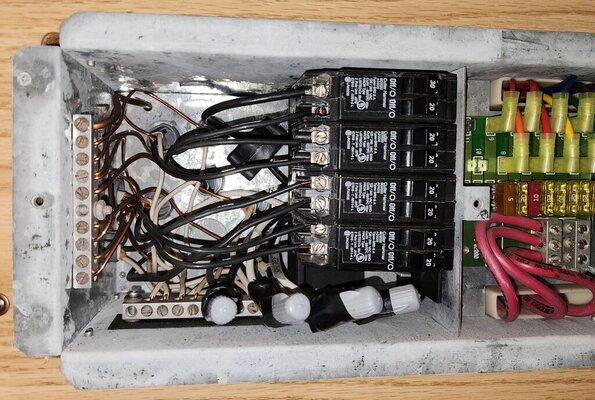Henry J Fate
Well-known member
- Joined
- Jun 14, 2018
- Posts
- 2,292
170 volts is a problem. replace the regulator.
65hz is also high indicating the rpm of the engine is too high.
the 130 volt reading could be enough to immediately shut the the generator off. 170 and its definitely shutting down.
my 2001 microquiet will shut down on 3 seconds of 66-69hz . if it hits 70, shuts down immediately.
you do have a rpm problem. there should be an adjustment for that. find it and turn it down some. go in small increments.
65hz is also high indicating the rpm of the engine is too high.
the 130 volt reading could be enough to immediately shut the the generator off. 170 and its definitely shutting down.
my 2001 microquiet will shut down on 3 seconds of 66-69hz . if it hits 70, shuts down immediately.
you do have a rpm problem. there should be an adjustment for that. find it and turn it down some. go in small increments.

